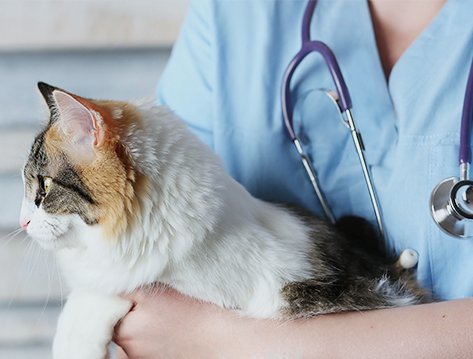What are bladder stones in dogs?
Bladder stones in dogs (or uroliths) are a relatively common condition that affects both male and female dogs of all ages. Some canine breeds are more likely to have bladder stones, these include brachycephalic (BOAS) breeds such as Pugs and French Bulldogs. Dogs with liver disease are also more likely to be affected.
What causes bladder stones in dogs?
Bladder stones are formed when there is an over-saturation of minerals with or without other underlying issues, such as a urinary tract infection within the bladder. The acidity of the urine plays a role in the formation of stones — this can be influenced by the presence of a bacterial infection or less commonly by an inappropriate diet.
These minerals form crystals and then form stones — the type of stone is dependent on its compositions. Most common types of stones include;
- Struvite. The most common bladder stones found in female dogs. According to clinical studies, up to 26% of bladder stones have been found to contain struvite.
- Calcium Oxalate. Most commonly found in males (73%). High-risk breeds include; Lhasa Apsos, Shih Tzus and Bichon Frises.
- Cystine and Ammonium Urate. Most commonly diagnosed in breeds such as; Dalmatians and English Bulldogs, urate bladder stones account for around 5% of diagnoses in dogs.
Bladder stones in dogs can form over a period of time without showing any immediately obvious signs, however, especially in male dogs it can be a life-threatening emergency if the stones obstruct the flow of urine from the bladder.
What are the symptoms of bladder stones in dogs?
The symptoms of bladders stones or crystals causes abrasions within it, which can lead to a degree of bleeding and inflammation followed by pain and discomfort. This can be present in some or all the following symptoms:
- Increased drinking and urination
- Presence of blood/red discolouration in the urine
- Straining and/or vocalisation when attempting to urinate
- Production of small amounts of urine frequently
- Complete lack of urine production despite attempts to void the bladder (this can be an emergency)
How are bladder stones diagnosed?
In order to confirm the presence of bladder stones, multiple tests may need to be carried out:
- A complete urine analysis
- An abdominal ultrasound which may need to be under sedation will show evidence of a stone
- An X-ray may be required to confirm ultrasonographic findings
- In some cases, a stone can be palpated in a free consultation with a vet
How can bladder stones in dogs be treated?
Bladder stones can be treated depending on the type of stone and severity of the individual case. Some medical treatments may be offered, however, in most cases, surgical intervention using a procedure called a cystotomy is required. During a cystotomy, an abdominal incision is made under general anaesthetic and the stones are removed via an incision made over the bladder itself.
Your dog can usually return home with some pain relief medication and/or antibiotics on the same day. Depending on the type of stone, your dog may be sent home and prescribed a therapeutic diet. This aids in dissolving certain types of stone and helps to prevent re-saturation of certain minerals, as well as regulate the acidity (pH) of the urine. A therapeutic diet is likely to be required for some time (up to 3 months).
Your pet will then need to be seen in a free follow up consultation 3-4 days post-surgery to be checked. A 14-day post-op consultation will also take place to confirm that the surgical incision has completely healed.
How to prevent bladder stones in dogs?
To prevent bladder stones in dogs, prescription urinary diets initially help dissolve struvite stones. They also promote a favourable level of urine acidity and contain controlled amounts of magnesium, calcium and phosphorus which reduces the likelihood of urinary stone formation.
If you’re concerned your pet is suffering from bladder stones and is showing any of the signs discussed above, please contact your local Animal Trust clinic right away.




